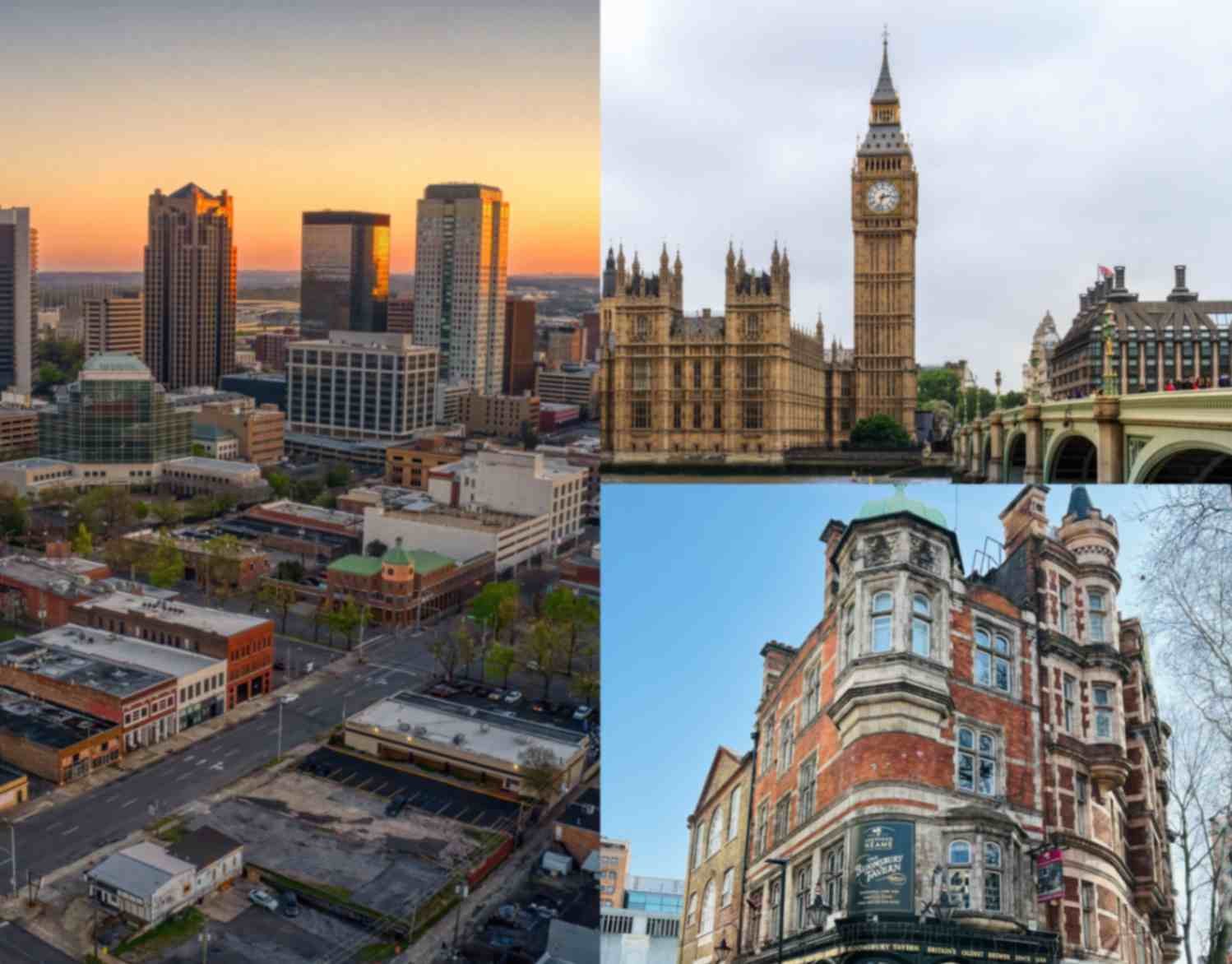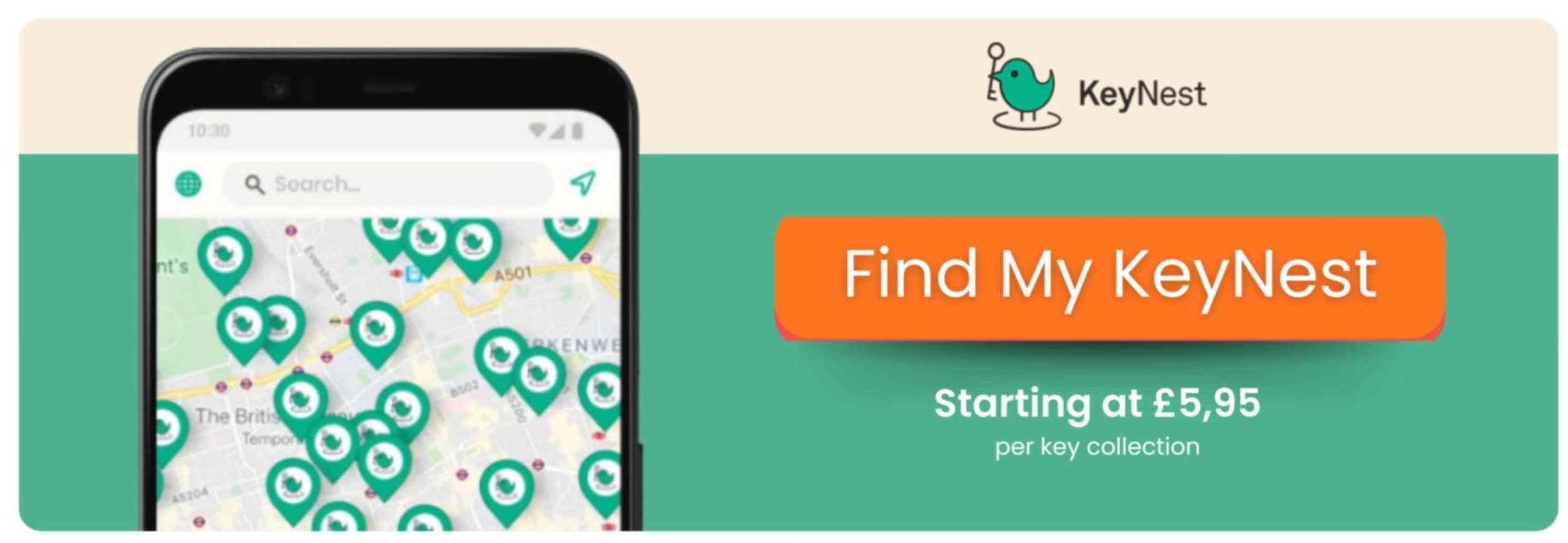Over 1500 key exchange locations nationwide
Understanding Airbnb Short-Term Rental Regulations In Birmingham
Birmingham, one of the UK’s most dynamic cities, is a popular destination for travelers due to its rich industrial history, vibrant cultural scene, and modern attractions. With the growing demand for short-term rentals, platforms like Airbnb have flourished, offering flexibility for both Airbnb hosts and guests. However, this rapid growth has brought about new challenges, including housing shortages, noise complaints and concerns over neighborhood harmony.
In response, Birmingham city council have implemented specific regulations to address these issues on rental properties. For Airbnb hosts and landlords, understanding these rules is crucial to operate legally and ethically. From taxation to planning permissions and safety requirements, navigating the regulatory landscape can feel overwhelming. Guests, too, benefit from a better understanding of these regulations, ensuring that their stays are compliant and enjoyable.
This guide will help you understand the key aspects of Birmingham’s Airbnb regulations, providing clarity for both hosts and guests. With proper adherence, you can avoid fines from your rent income, contribute to sustainable tourism, and make the most of your Airbnb experience in Birmingham.
1. Key Legal Requirements Of Short-Term Rental Business In Birmingham
Hosting vacation rentals in Birmingham comes with specific legal requirements that ensure compliance with local laws. These regulations are designed to address housing and short term rental ratio concerns, community well-being, and safety standards.
Planning permission: Certain short-term rental in Birmingham may require planning permission to operate as short-term rentals.
Council tax obligations: Hosts need to confirm whether their property is liable for council tax or business rates.
Health and safety standards: Properties must comply with fire safety regulations and have smoke and carbon monoxide detectors.
Waste management: Proper waste disposal protocols must be followed to avoid penalties.
Insurance coverage: Adequate insurance is essential to cover potential liabilities.
Transparency: Hosts should communicate with neighbors to address potential disturbances.
2. Taxation Local Regulations For Airbnb Hosts In Birmingham
Managing taxes is a crucial aspect of hosting on the rental market. Birmingham hosts must adhere to specific tax rules to avoid penalties and maintain compliance with HMRC strict regulations.
Declaring income: All rental income earned from hosting must be reported in a self-assessment tax return.
VAT requirements: Hosts earning above the VAT threshold need to register and collect VAT.
Furnished holiday let benefits: Qualifying properties can enjoy tax advantages under this category.
Council tax vs. business rates: Depending on the rental’s usage, hosts may need to pay one of these.
Expense deductions: Eligible expenses like maintenance, utilities, and cleaning can be deducted.
Penalties for non-compliance: Failure to comply with tax obligations can result in fines. We recommend to consult a legal tax professional for knowing tax regulations.
3. Short-Term Rental Zoning & Neighborhood Restrictions
Certain areas and landscape in Birmingham are subject to short-term rental regulations and zoning restrictions to manage the impact of short-term rentals on the local housing market and community.
Restricted zones: Some neighborhoods have stricter regulations and zoning in Birmingham to preserve housing for residents. Hosts must contact in Birmingham the city council whether it is legal in Birmingham to put up a holiday in a certain area to adhere to a specific zoning laws.
Planning permissions: Short-term rental properties hosts must stay informed in restricted zones may need planning approval for short-term lets as proposed rules.
Community impact: Zoning aims to minimize disturbances caused by short-term rentals.
Inspection policies: Local authorities may inspect properties to ensure compliance.
Fines for violations: Short-term rental hosts must be aware of non-compliance can result in substantial penalties.
Resources: Hosts can consult local planning offices for guidance.
4. Benefits & Challenges Of Short-Term Rental Regulations For Guests In Birmingham
Guests visiting Birmingham can benefit from structured Airbnb regulations, which ensure safety and transparency. However, these rules may also lead to certain challenges, such as limited availability but can also help in making Birmingham more attractive for str.
Improved safety: Properties must meet specific health and safety regulations whether your property is in fire risk or gas leak.
Transparent listings: Clearer and more accurate information is provided on Airbnb profiles.
Limited choices: Stricter regulations may reduce the number of available listings.
Higher costs: Compliance costs for hosts can lead to increased rental prices.
Community focus: Measures are in place to preserve the integrity of neighborhoods.
Alternative options: Guests can explore licensed accommodations for a reliable experience.
5. Short-Term Rental Comparison With Other UK Cities
Property owners starting a short-term rental business should be aware of how Birmingham’s local council approach to Airbnb regulations shares similarities with other cities in the UK but also reflects its unique challenges and priorities. Understanding these differences helps in contextualizing the regulations for short-term rental landscape.
London: A 90-day annual cap for operating a short-term rental without planning permission.
Edinburgh: Mandatory licensing introduced for short-term lets in 2022.
Manchester: Considering restrictions in high-demand areas to address housing shortages.
Bath: Focused on protecting its historic areas through zoning restrictions.
Brighton: Limits on short-term rentals near tourist-heavy areas.
Birmingham’s uniqueness: Birmingham is generally considered to be able to balancetourism growth with community welfare.
6. Tips For Airbnb Hosts To Stay Compliant
Staying compliant with Birmingham’s city officials Airbnb regulations requires proactive planning and a commitment to meeting legal standards. These tips can help hosts avoid issues and ensure a successful hosting experience.
Understand local laws: Familiarize yourself with Birmingham’s specific regulations.
Keep records: Maintain accurate records of income, expenses, and bookings.
Obtain insurance: Ensure your property has adequate liability coverage.
Invest in safety: Install smoke alarms, carbon monoxide detectors, and fire extinguishers.
Respect neighbors: Address potential noise and disturbance issues proactively.
Seek professional advice: Consult legal or tax experts for guidance.
Navigating And Understanding Airbnb Regulations In Birmingham
Birmingham’s Airbnb regulations are designed to balance the interests of hosts, guests, and the local community. By understanding these rules, hosts can operate legally while enhancing their guests’ experiences. Guests, on the other hand, benefit from safer and more transparent rental options.
As the city continues to grow as a popular destination, compliance with these regulations ensures a sustainable and harmonious environment for everyone involved. For hosts, adapting to these changes requires diligence and commitment, but the rewards of a well-managed short-term rental business are worth the effort.
Guests can also play a role by respecting the communities they visit and choosing compliant properties. Together, hosts and guests contribute to the success of Birmingham’s tourism industry while preserving its vibrant local culture.
About Us: KeyNest
KeyNest offers you a convenient service for storing and exchanging your property keys. You can drop off a key at any of the 7,000+ locations in our network, so there’s one such Point located next to your property.
Guests, cleaners or contractors can then collect the key securely from a KeyNest Point or KeyNest Locker which is usually open 24/7. You'll be notified each time the key is picked up or returned, and you can even customize check-in and check-out times. By leveraging technology and a global network of locations, KeyNest continues to redefine property management, offering solutions tailored to meet the evolving needs of the rental market..
KeyNest has an ever-expanding global network of locations located just minutes from your property. To find out more you can contact us.
Neil Beltran 22 Jan 2025




